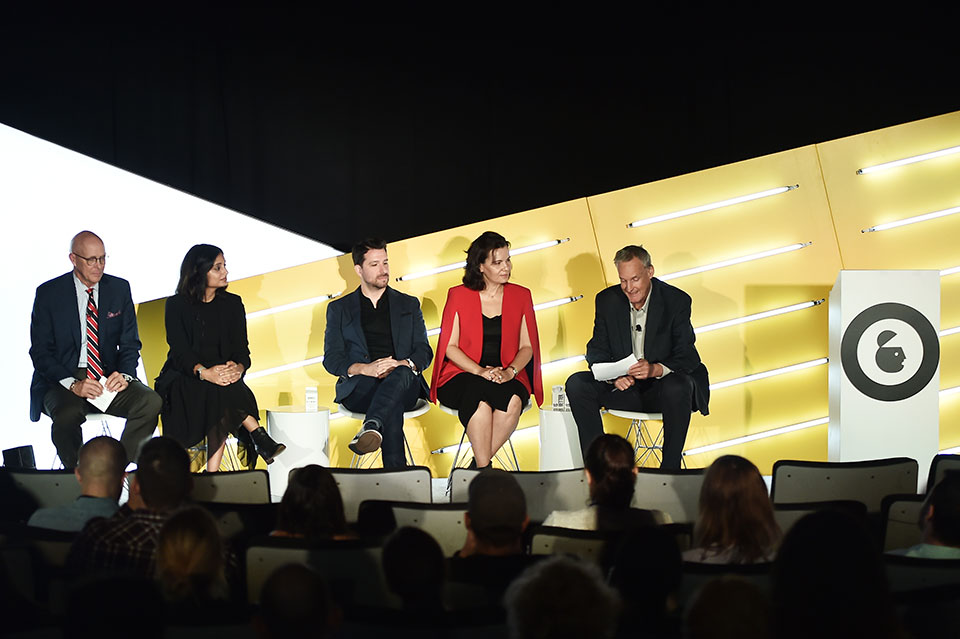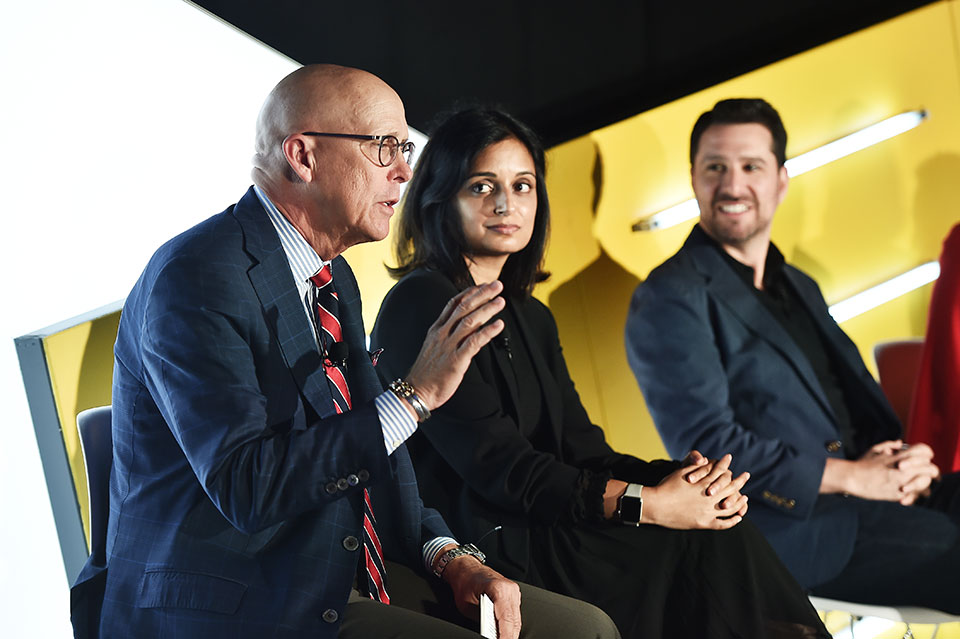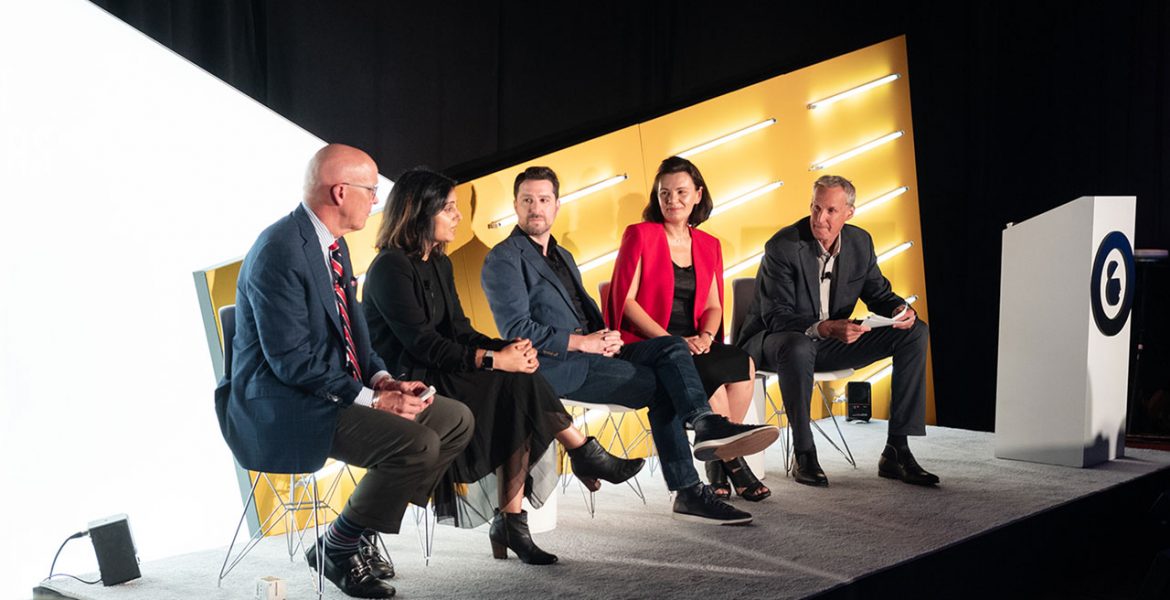Focusing on social connectedness and community building, panelists at Advertising Week New York tackled the question of why brand belonging strategies are important to companies in the United States today.
The panel consisted of five communications experts; J. Walker Smith, Chief Knowledge Officer of Brand and Marketing at Kantar Consulting, Tatyana Mamut, Head of Product at Nextdoor, Ronak Patel, Senior Vice President of Marketing, PR, Research and Digital Revenue at Trusted Media Brands, and Jack Koch, Head of Insights and Measurement at Reddit. Bruce Kelley, Chief Content Officer at Reader’s Digest, contributed to and mediated the conversation as well.
Kelley began the conversation by asking Smith about what he thinks consumers are currently looking for that brands are not offering them. In response, Smith explained that people are really looking for more human connection rather than connection with brands.

“There’s so much that we hear and see about polarization and disconnection that we kind of overlook the fact that right in front of us, almost hiding in plain sight is this enormous move towards social connectedness,” Smith said.
Humans crave connection to the lives of others, so, according to Smith, this enormous move towards social connectedness is now leading the marketing and brand-building industry in a new direction that is more about person-to-person interaction rather than brand-to-person interaction. If companies can actively evolve and foster that personal connection between people, then they will have an advantage when competing against more passive or traditional brands.
 The Nextdoor app, a social networking service for neighborhoods, brings this shift from brand-to-person interaction to person-to-person interaction to life. Nextdoor, mostly discussed by Mamut during the panel, enables neighborhood residents to connect directly with those who live near them about trends and issues in the community.
The Nextdoor app, a social networking service for neighborhoods, brings this shift from brand-to-person interaction to person-to-person interaction to life. Nextdoor, mostly discussed by Mamut during the panel, enables neighborhood residents to connect directly with those who live near them about trends and issues in the community.
“[Nextdoor] makes sure that everyone who comes to our platform is an actual human being at a verified address, so that we know that the people that you’re talking to on the app are actually people who live in your neighborhood who share your common place,” Mamut said. “Therefore, we built on the power of proximity to drive the local connection.”

Through this method of connecting neighbors, Nextdoor combines the key values of human-to-human connectedness with community building. It does this by, in addition to connecting consumers to each other, striving to connect businesses to consumers in a more personal way. Whether it’s driving people to organically discuss a brand in communities or the company putting an advertisement directly onto the app, Nextdoor gives companies the opportunity to foster this personal connection.
“When [a company] has these personal, intimate connections and [they’re] coming into a space where people are already recommending brands, [they’re] much more likely to get that pickup through organic conversation,” Mamut said.
In the panel, Mamut brought up an example of a company utilizing this brand strategy on Nextdoor: Home Depot. Specifically, the company ran advertisements on the app promoting the DIY workshops for kids in their local stores, which, if clicked on, brought the viewer directly to the website to sign their child up for the local workshops. This sense of local community and the method of combining online interactions with offline ones led to organic conversation about the company and its products, according to Mamut.

“That sort of ecosystem of driving both brand affinity and local action are really powerful for advertisers within our platform,” Mamut said.
Further into the conversation, Koch explained how Reddit, an American social news aggregation, web content rating and discussion website fits into this shift to social connectedness and community building.
“[Reddit] has communities that have their own policies and then the moderators are actually Redditors themselves who have built up these communities and built this health,” Koch said.
Through person-to-person interaction, Reddit creates a sense of connectedness and community on the platform. According to Koch, this sense of community then leads to organic online conversation about brands and products, tying the brand’s role into this shift being discussed by the panel.
Although this whole idea of building brand and community by increasing person-to-person interaction and connectedness is appealing and sounds successful, Kelley asked the panelists what the true Return on Investment is.
“There is some ROI and really it’s imperative for you to do some experiments, to do some testing, to work with some of these platforms to find ways in which your brands can realize the value from some of this,” Patel said. “It’s an enormous phenomenon in the marketplace.”
According to the panelists, this shift from brand-to-consumer interaction to consumer-to-consumer interaction is taking over the industry and helps brands to be successful by building connectedness and community in their local areas.
“Building authentic communities takes time. It does,” Kelley said. “You have to be really invested in that commitment to it. We wanted [our brand] to be authentic and connect to communities and Nextdoor was that, so it’s just a perfect example of finding the right partner to build those authentic communities.”
Want to learn more about this and other important industry topics? Be sure to visit AWLearn, Advertising Week’s new your-round education platform.
Photos: Shutterstock / Advertising Week

